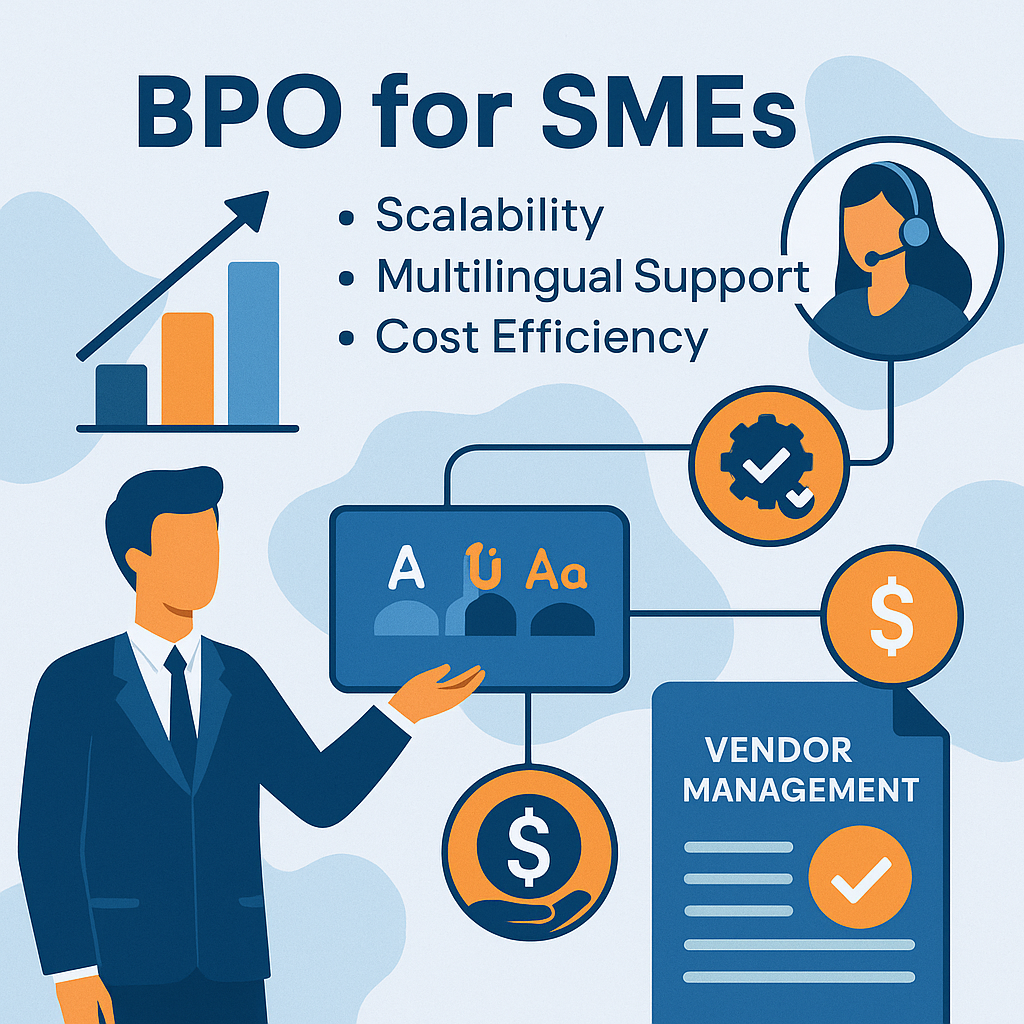How BPO Empowers SMEs: Unlocking Growth through Specialized Services
Introduction
Small and medium-sized enterprises (SMEs) are the backbone of the global economy, yet they often face challenges when it comes to accessing specialized skills and advanced technologies. Business Process Outsourcing (BPO) has emerged as a powerful solution, allowing SMEs to leverage expertise without bearing the financial burden of full-time hires. In this blog post, we will explore how BPO enables SMEs to focus on core business functions while delegating non-core tasks to expert providers. We will also highlight best practices and share real-world case studies to demonstrate the transformative impact of BPO on small businesses.
The Rise of BPO for SMEs
Traditionally, BPO was associated with large corporations seeking cost efficiencies in customer support or back-office operations. However, the trend has shifted as more SMEs recognize the strategic advantages of outsourcing specialized services. According to a recent report by Deloitte, 59% of small businesses that adopted BPO saw improved efficiency and reduced operational costs within the first year (Deloitte, 2024).
Why SMEs are Turning to BPO
- Cost Efficiency: Outsourcing reduces overhead costs, allowing SMEs to invest more in growth.
- Access to Expertise: SMEs can tap into specialized skills that would otherwise be out of reach.
- Scalability: BPO providers offer flexible solutions that can scale according to business needs.
- Focus on Core Activities: By outsourcing non-core functions, SMEs can concentrate on strategic priorities.
Best Practices for Implementing BPO in SMEs
- Identify Core vs. Non-Core Activities: Clearly define which tasks are critical to your business and which can be outsourced.
- Choose the Right BPO Partner: Look for providers with a proven track record in your industry.
- Establish Clear Communication Channels: Set expectations and maintain regular updates to ensure alignment.
- Monitor and Evaluate Performance: Use KPIs to track the effectiveness of outsourced functions.
Real-World Examples
A leading e-commerce provider partnered with a BPO firm to manage customer inquiries, achieving a 20% reduction in response time and a 30% increase in customer satisfaction. Similarly, a global energy company outsourced its data processing tasks, saving approximately 40% in operational costs while improving data accuracy.
Challenges and Mitigation Strategies
While BPO offers significant advantages, SMEs should be mindful of potential challenges such as data security and cultural differences. Implementing robust data protection measures and fostering cultural understanding with offshore teams can mitigate these risks.
Conclusion
BPO has become an indispensable tool for SMEs looking to optimize operations, reduce costs, and maintain competitive advantage. By strategically outsourcing non-core functions, small businesses can focus on what they do best—growing and innovating. As the demand for specialized services continues to rise, BPO remains a key enabler of sustainable growth.
Internal and External Linking
For further insights on optimizing BPO for small businesses, visit the SEEOS blog. For comprehensive industry reports, explore Deloitte’s BPO insights and PwC’s outlook on SME outsourcing.
